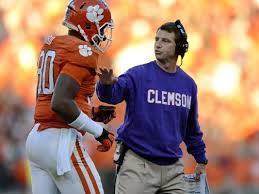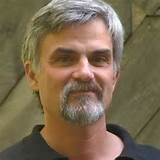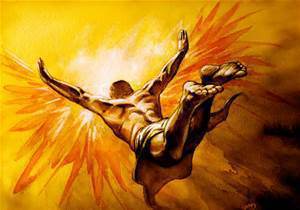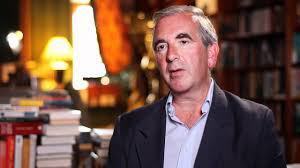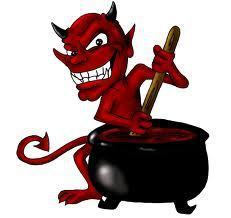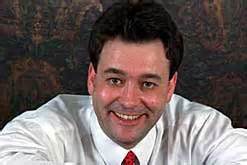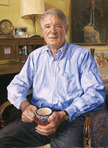William Peace's Blog, page 52
March 14, 2015
Review: Do No Harm
My wife recommended this book to me. It was written by a neurosurgeon, Henry Marsh, to whom she was referred with back pain. We both met him in his outpatient clinic, and he impressed us – partly because he said that no surgery would be required. When Mr Marsh’s book was published and was shortlisted for a 2014 Costa Award, my wife naturally wanted to read it.
Henry Marsh
The book is subtitled “Stories of Life, Death and Brain Surgery”, and I found it to be a very engaging read. The subject matter: brain surgery is quite mysterious, but Mr Marsh explains procedures so that the main points are quite understandable without being technically obscure. His writing flows pleasantly, and sincerely; one never feels that he is the least bit condescending. In fact, he lays bare the mistakes he has made in surgery, and reveals the anguish he has felt. Successful, life-saving procedures are dealt with matter-of-factly. With twenty-five chapters, each dealing with a different condition, one feels well-exposed to brain surgery. Mr Marsh tells the reader of his development from nursing aide to med school, through the doctors’ hierarchy to consultant, and includes vignettes of the teaching of junior doctors. The book is not from a doctor’s perspective only; he reveals the thinking and the feelings of patients, too. The hospital setting is covered: nurses are caring but over-worked; managers are bureaucratic, unsympathetic and stubborn. Stories from his voluntary practice in Ukraine are included, as well, and these provide a strong contrast to the state of the art and the clinical and management culture in the UK.
One can’t help but feel, as one reads the book: Why in the world would anyone want to be a neurosurgeon, given the complex opportunities for failure? Mr Marsh doesn’t answer this question directly, but I think his view would be that the euphoria that one can feel from saving a life or advancing the technology more than offsets the anguish one feels from a mistake that leaves a patient paralysed. Given, therefore, that a neurosurgeon has control over the life and death of his (or her) patients, Isn’t it tempting for a neurosurgeon to feel like a god? Again, Mr Marsh does not answer directly. He seems to say that any pretence at being a god is destroyed in the humility of the learning process.
Do No Harm was one of five books shortlisted in the biography category of a Costa Book Award in 2014. The winning book was H is for Hawk by Helen Macdonald about her struggle to train a goshawk. On the face of it, one would think that Marsh’s book would have a leg up: after all, a book about the ramifications of life-saving surgery sounds more important than the difficulty of training a very wild animal. Perhaps a clue can be found in what the Costa judges said about H is for Hawk: “A unique and beautiful book with a searing emotional honesty, and descriptive language that is unparalleled in modern literature.” I haven’t read H is for Hawk, but what I think the judges are saying is that Helen Macdonald’s writing is what won the prize for her. Still, I would recommend putting Do No Harm at the top of your reading list.
March 7, 2015
Who Defines Quality These Days?
The following article by Jillian Bergsma, a writer and contributing editor for Independent Publisher, appears in the current issue of the Independent Publisher Newsletter. I think it’s worth repeating in its entirety.
Jillian Bergsma
“A few months ago I received an interesting question from an Independent Publisher reader: “Who defines [book] quality these days?” In today’s publishing landscape, we’ve seen a dramatic shift in who owns the power to say a book is good, bad, or just okay. For a long time, a writer had to be vetted by so many people: a literary agent, the editor or publisher, the copyeditor, the proofreader, the reviewer, the bookseller or librarian, and then—finally—the reader.
“But now many self-published authors cut out most or all of those middlemen, going straight to the consumer. . . . So without the horde of literary mavens between an author and a reader, who does define the quality of a book?
“The question has several answers. Let’s start with those aforementioned mavens who are often left out of the equation. Thousands of writers still submit to agents and publishing houses each year. There’s a certain prestige associated with traditional publishing, and for good reason. You get a team of people to get your book into the best shape possible; you don’t have to pay the out-of-pocket costs to get the book on the market; and you have professionals selling your work.
“However, for a lot of aspiring authors, rejections from agents and publishers become the norm. Some folks say it takes scores of queries before you’re likely to find the right match (see Chuck Sambuchino’s article “Don’t Give Up Until You’ve Queried 80 Agents or More”). As harsh as the rejections can sometimes seem, they aren’t usually unfounded. Some rejections are on a taste basis—an agent or publisher just doesn’t connect with the material or think it would be right for their list. To each their own. But sometimes a rejection letter will come back that can give valuable feedback to a writer. Perhaps the level of writing wasn’t strong enough, the characters not fully developed, the plot too similar to a blockbuster book already in the market. In these ways, agents and publishers still serve a vital role in determining the quality of books in the marketplace. They know their stuff, so if you’re lucky enough to get more than a form response back, take the advice they give and put it to use.
“Booksellers and librarians are another group that can fall by the wayside if you’re self-publishing, which may be even more devastating than the loss of agents and publishers. The folks working in your local indie bookshop or at the town library are incredible resources and often have incredible taste. These days especially they must be extremely selective when choosing books for their shelves—books are expensive, shelf space is ever shrinking, and readers may be more likely to download a $0.99 ebook than to spring for the $26.99 hardcover.
“Booksellers and librarians have long been the real touch point for readers—before you could look up the ratings on Amazon, you needed your librarian to give you recommendations on which mystery novel to read next. So if you do have the opportunity to connect with your local library or bookstore, do it. Their responses to a book can be invaluable, even if that response isn’t the one you are looking for.
“The next category of gatekeepers includes bloggers and reviewers—opinions from other readers who aren’t directly in the line of producing or selling books. With the rise in social media, these folks are becoming bigger players in the game. Many of us follow a handful of favorite blogs penned by fellow readers who will tell us if a book is wonderful or a waste of time. For most people, the logo on the spine of the book doesn’t matter nearly as much as the opinion of someone we trust. And of course there are certain established reviewing outlets (think New York Times, etc.) that can turn us on or off a book in a matter of a few sentences. More than ever, these third-party reviews are gaining power in determining the quality of a book.
“And finally: THE READER. I have to say that the reader is the most influential person in determining the quality of a book. And perhaps that is how reading was always meant to be. What does it really matter if your best friend or your boss or a publisher you’ll never meet loves or hates a book? What matters is that you do. In the publishing cycle, the reader is the customer, and how does that age-old adage go? The customer is always right.
“Okay,” you say. “Sure, the reader is the most important. But what power do they really have beyond buying and selling books? How can they influence what gets published in the first place?”
“Having worked in publishing for several years, I can tell you that the reader is more powerful than they know. Editors routinely check Goodreads, Amazon, and blogs to look at what people are responding to in terms of writing style, characters, covers, and genres. Some publishers, like Amazon, are even introducing programs such as Kindle Scout, where readers decide which books are worthy of publication.
“So yes, at the end of the day, the reader holds the best hand. The publishing business wouldn’t be very successful if we didn’t understand how important our end-users really are, but today more than ever we are able to benefit from the thoughts and opinions of readers. Of course, the people I’ve discussed up until now—the agent, the publisher, the bookseller, the librarian, the reviewer, the blogger—are all readers too. And they want you, another reader, to enjoy or despise a book just like they do. At the end of the day, we’re all after the same thing here: a great read. “

March 4, 2015
Coaches & Editors
I just returned home from a coaching session with the chief executive of a London charity. (I accept assignments from the Cranfield Trust for pro bono assignments with charities which need help. Cranfield Trust is, itself, a charity – originally associated with Cranfield Business School – and which maintains a roster of management consultants. The Trust’s role is to match consultants with charities in need.)
Like a professional football coach, I am supposed to be more experienced than the players (charity managers) I coach, and I am supposed to see problems and solutions which the player (charity manager) didn’t see or hadn’t seen yet.
The chief executive I’m coaching has some difficult problems. The charity he is running is teetering on the edge of bankruptcy, and his board of trustees see their role as asking a lot of questions, rather than taking difficult decisions. Moreover, the trustees seem to be allergic to the idea of making a personal commitment to do something useful. I am by no means a perfect trustee, but I am treasurer of another charity which was technically bankrupt, and which absolutely had to win a particular contract to survive. The chairman and I put a lot of personal hours into helping the managing director prepare a proposal which brought in £1.5 million in revenue.
My chief executive coachee believes that one strategy might be to merge with a larger, related charity. Such a merger would reduce overheads, and, with a larger activity, would make fund raising easier. But the trustees seem to feel that the charity would lose its identity, and they are insisting on meeting with the charity’s employees to get their opinions. I think it’s pretty obvious that most employees, being worried about job security, will oppose any merger. Some of the trustees seem to be so emotionally wedded to the current identity of the charity that they are unable to see that there is a larger question: which is better: a charity that does things differently with a different identity or no charity at all?
The chief executive is struggling to keep the trustees from behaving like lemmings and diving, en mass, into the sea. We want to keep the trustees moving toward a rational decision: talk to other charities about their views on a potential merger. In the meetings that he and I have, we talk about the details of how to: instill a sense of urgency; keep things rational; obtain a decision, and often, in our discussions, I will suggest a tactic, or an approach that he hadn’t thought of.
So, I got to thinking about the similarities between a coach and a literary editor. As you may know, I don’t have a literary editor, but I would really like to have one. An editor would be someone who might say: “These couple of pages don’t really add anything to your theme. Cut it down to one well-constructed paragraph” or “This character would be more interesting and would add emphasis to your theme if you exposed this trait in her character” or “This section here comes across as foggy; what are you trying to say?”
As it is, I have to rely on my own judgement, but like the chief executive, I may sometimes miss a crucial point or detail. And, I’m sure my writing would benefit from having an editor.
My publisher doesn’t offer an editorial service. There is a lady who reviews submissions and accepts or rejects them, as submitted, in their entirety. Traditional publishers have assigned editors who read the entire manuscript carefully, and suggest changes before publication.
I realize that I could hire an editor to review my manuscript. But apart from the fact that I, personally, would have to pay him/her, the editor wouldn’t be part of a publication team that knows the market and is working together to please readers and increase sales.
So, I guess what I’m saying is that I, too, would like to have a coach, and that I haven’t given up on the idea of working with a traditional publisher.

February 20, 2015
Reviews
Reviews are very important to an author in two ways: they can provide valuable feedback to the author, and they can arouse the interest of other potential readers. Reviews can also come to the attention of a prospective publisher. It goes without saying that authors want favourable reviews, but, in my opinion it’s better to have an honest, unfavourable review than no review at all. After all, one wants to learn and grow as an author.
There are two measures of the value of a review: credibility and expertise. A review by, for example, the book editor of the New York Times is far more valuable than a review by your aunt Martha. The trouble, from an author’s perspective, is that its pretty easy to get a review by Aunt Martha, and it’s very difficult to get one from the editor of the Times.
So, how are book reviews used? The short answer is that they are used in a myriad of ways to market an author and his/her book. They appear on the Amazon book web pages and on Goodreads. They are on the back cover of the book, inside the front cover and bits of a review may appear on the front cover. Reviews are featured in billboard and newspaper/magazine adverts, and on promotional materials in book shops.
How do I get my reviews? There are several ways. I have an old friend who reviews my books; I think she does a thorough and objective job. I have used paid review services like BookReview.com, but their credibility is fairly low. There are book bloggers who offer to review books – mostly for free. At one point I must have trolled through fifty book blogger’s sites to find three that said my book sounded interesting, would I please send it? I think all this resulted in one review. I have given away books on Goodreads as a part of the contests they run. Theoretically, the deal is that if you win a free book from an author, the winner is supposed to write a review. I sent out ten books to the winners and received one review. Perhaps people just like to have free stuff! There are spontaneous reviews that one tends to get from readers who have bought a book on Amazon. These spontaneous ones can be interesting. There was a one-star review who didn’t like my book at all because it ‘wasn’t credible’. (That was the complete review.) There was one that looked like a third grade book report. And, of course, there are insightful, semi-professional reviews. I have a practice of not commenting on reviews, except – where appropriate – to say ‘thank you’.
Yesterday, I signed onto a webinar that was put on by the Independent Book Publishers Association. It featured a spokesman from Foreword Reviews who explained how they chose books that they review. Having a review on Foreword Reviews would be very helpful. Their quarterly magazine reaches plenty of librarians, publishers and editors – as well as the general public. From my point of view, it also has the advantage or specialising in indie (independently published) books. Two problems, though: first, there has to be intense competition to be selected: the magazine is published four times a year, and there are well over a hundred thousand indie books coming out every year. And second, one has to submit the book near the publication date, so if a book has been out more than six months, it is probably of little interest.
If any of my readers considers himself/herself to be a budding reviewer and would like to have a go at one of my books, please choose a title on my website (www.williampeace.net), send me an email (bill@williampeace.net) with your address, and I’ll send you a copy.

February 12, 2015
Inside the Writing Life
In the Winter 2015 edition of The Exeter Bulletin, the alumni magazine of Phillips Exeter Academy (the boarding school from which I graduated) there is an article Inside the Writing Life. It is an interview of Roland Merullo (class of ’71, and quite a bit after my time). Merullo has written 13 novels and four works of non-fiction. He has been recognised for a Booklist Editors’ Choice, a Maria Thomas Award and was a finalist for the L. L. Winship/PEN New England Prize. The interviewer is David Weber, who is Emeritus English Instructor at the Academy.
Roland Merullo
Q: Does the act of writing allow you to enter a space where it’s only yourself you need to please? Or do thoughts of agents, publishers, other writers, or readers enter in?
Merullo: I think you really have to work to keep agents, publishers and especially critics out of the room where you write. At the same time, in order to improve, especially in the early going, you have to be open to criticism and suggestion, so it can be a tightrope sometimes. I support my family only from my writing, so I can’t indulge myself and write a 2,000 page essay on the meaning of life, or golf, or learning to swim, or my love for my daughters. But I’ve gotten pretty good at going into my interior room and mining my own truth, even if its eventually packaged in a way that will please publishers and bookstore owners. Before I started on In Revere, In Those Days, I was well into another book, hundreds of pages, and it just felt false to me, as if I were writing to please some outside critic and not from my center. One night, I just said, “Screw this” out loud, put all that work aside and wrote 30 pages of In Revere in a couple of hours. That felt right.
My comments: I agree that one needs to exclude external influences when one is writing, but that one has to be open to critiques at other times. I, too, have scrapped whole sections of a novel that didn’t ‘feel right’. I started over with what I felt was good and genuine.
Q: Do you think of writing as existing above all in its own realm, called art? Or do you want your books to act in some way on the worlds of culture, politics, society – or even on the inner lives of readers?
Merullo: There is art to it, and art is essential to any healthy society, but I take a workmanlike approach to writing books. It bothers me a great deal to hear writers talk about their work as if they have a special line to God or something, or as if it’s “torture” to face a blank page. People who value words should use that one more carefully. Writing reminds me very much of carpentry, in both its methodical aspects and in the need to think ahead . . . though my body hurts less after writing a novel than it did after building a deck or a garage. I’m all about the inner lives of readers, and the interior life in general – an area we tend to ignore as a society. But I feel that for it to matter, the interior dimension should be linked to our outer lives, to things like politics, for example. . . .
My comments: I like the comparison of writing with carpentry, and I agree that both require methodology and planning. I’m surprised by his comment, below, that he doesn’t outline. To me an outline is essential to avoid the unnecessary and to include the essential, just as a carpenter’s drawing assures that the project will be completed as envisioned. I sometimes feel that I have a muse – some external influence – because, occasionally, I will suddenly think, after I’ve written something: “Where did that come from? That was brilliant! I could never have thought of that!” I doubt that it was God, but maybe The Presence spoke up.
Q: By this time do you write intuitively, having internalised the skills you needed? Or does technique remain a conscious focus?
Merullo: I write almost completely intuitively. Early on, I’d study the work of other writers, but I’m not particularly analytical or scholarly. I don’t outline, try not to over analyse. When I taught in college – 10 years at Bennington and Amherst – it wasn’t especially enjoyable for me to analyse the great works of literary art, to break them down into pieces, and try to explain why they were so good. Some of that is a teacher’s job, of course, necessary and good, but to me it was too often like eating a delicious piece of pie and having to sit there and talk about the ingredients in elaborate detail. I just wanted to eat the pie. And now I just want to bake the pie. My feeling is that if you go down deep into yourself – beyond the purely intellectual level – you can maybe write something that reaches down deep inside the reader; you can connect with them in the most profound way. I think about technique very little now.
My comments: I write pretty intuitively, but as I review what I’ve written, I think about details: technique. I think his comment about reaching down deep inside yourself and thereby being able to reach something deep inside the reader is tremendously important. I just wish I could do it more often!

February 9, 2015
Icarus as an Artist
The myth of Icarus, who, with his father, Daedalus, tried to escape from Crete, using wings that his father made from feathers and wax, is subject to interpretation. Icarus disobeyed his father’s instructions not to fly too high, because the heat of the sun would melt the wax of his wings. Icarus flew too high, the wax melted and he fell into the sea.
The usual interpretation seems to be that it was hubris – over-ambition – which caused Icarus to fall to his death. The moral being that we should not fly too low in our lives, as that would not do justice to our capabilities, but we should not try to fly higher than or capabilities.
A few days ago, I heard another interpretation: that Icarus is a symbol of the artist, trying always to stretch and improve his art. This was suggested by Jorg Widman, clarinettist, composer and conductor. He was conducting the London Chamber Orchestra and introducing his own piece: Icarus’ Lament. He said that his piece was inspired by Charles Baudelaire’s poem Lament of an Icarus:
Lovers of whores don’t care,
happy, calm and replete:
But my arms are incomplete,
grasping the empty air.
Thanks to stars, incomparable ones,
that blaze in the depths of the skies,
all my destroyed eyes
see, are the memories of suns.
I look, in vain, for beginning and end
of the heavens’ slow revolve:
Under an unknown eye of fire, I ascend
feeling my wings dissolve.
And, scorched by desire for the beautiful,
I will not know the bliss,
of giving my name to that abyss,
that knows my tomb and funeral.
Jorg Widman’s Icarus Lament was an interesting piece – quite unconventional- played only by the string section of the orchestra. It began with the violins playing a very high note, pausing momentarily and continuing. One could visualise a winged creature beating its wings laboriously in very high flight. Then came the cellos, playing a more sombre melody, as a sort of counter-force to the violins. Finally, the violas joined in playing a more lively melody. One definitely had the feeling of the creative force (violins) struggling to assert themselves over the force of gravity (cellos), while the world (violas) looked on.
So I suppose that Icarus could stand as a symbol of the artist who is not content with the safe journey, and who yearns to stretch his talents.
For myself, I see it slightly differently: as a learning and development process. With each novel, I feel well, I’ve done that; what can I do next that’s a little more challenging? I suppose what I don’t do is to focus on what my readers would like, because that will tend to be ‘more of the same’. Rather, I think, if I do this new novel well, my readers will probably like it. And if they don’t? I hope that they’ll tell me what they didn’t like. But, if they do like it, and I feel I’ve met my challenge, I’m ready to move on to the next challenge!

January 30, 2015
Television on Books
There was an article in yesterdays Daily Telegraph entitled: “BBC must have a show about books”.
The article went on: “The BBC’s lack of books coverage is ‘an absolute disgrace’ according to Robert Harris, the novelist and chairman of the Costa Book Awards judging panel.
Robert Harris
Announcing Helen Macdonald’s memoir H is for Hawk as the £30,000 Costa Book of the Year, Harris used his speech to criticise the corporation. He pointed out that in the 1970’s, when the prize was launched, the BBC had two dedicated book programmes on its main channel. Now it has none. ‘It is an absolute disgrace that the BBC, a publicly funded organisation shouldn’t do a bit more to help our books business’, he said, to cheers from authors and publishing industry figures. ‘Come on, Tony Hall, if you’re watching this on BBC news. Do a little bit more for the books trade, please.’ He added, ‘In the 1970’s there were two book programmes: The Book Programme with Robert Robertson and Read All About It with Melvyn Bragg. Both were running at the same time when we only had three channels. We now have 300 channels, but we don’t have any dedicated book programmes.’
The Book Programme was dedicated to ‘books, authors and the literary life’. From what I can tell it ran on several BBC regional radio stations, as well as on TV. My search on Google failed to find a reference to Read All About It as a BBC programme or as a reference under Melvyn Bragg. Perhaps the BBC’s archive does not go back far enough. The BBC does, however, give full coverage to Robert Harris’ remarks.
As I think about media coverage of books, I tend to agree that more coverage of books and the literary world would be desirable – provided that the coverage is targeted at the right audience, through the right medium. It seems to me that television is most effective when it presents changing or moving images. If the programme were to feature books, the images would mostly be of authors talking, presenters commenting or book covers. Radio could be nearly as effective as TV in presenting literary subjects. To justify its cost as a medium, television needs to attract a mass audience, but is there a mass audience for literature? Given the many genres, styles, authors, and critics, it seems to me that attracting a large audience to books, in general, would be difficult.
My conclusion is that a weekly radio show of, say half an hour, in the early afternoon, could be quite interesting. It would feature trends and developments in literature (including writing, publishing, marketing and distribution) as well as brief, stimulating interviews with authors, publishers and critics. And, of course, the presenter would have to be both knowledgeable and a good entertainer.
What is your view?

January 28, 2015
Personification of Evil
Sometimes there are evil characters in novels. How do we create them and why?
To get at the answers to these questions, we first have to understand what we mean by ‘evil’. My Chambers Dictionary defines evil as ‘something which produces unhappiness or misfortune’. But suppose we are considering a situation where a love affair has ended. Is the one who ended it evil? Most of us wouldn’t consider a married person evil if s/he ended an extra-marital affair, but one (or both) parties to the affair may be very unhappy. Or consider someone who went to Las Vegas and lost £10,000 in a night of gambling. S/he may consider the event a real misfortune, but I doubt that most of us consider gambling to be ‘evil’. ‘Foolish’? Yes. To be avoided? Yes. But not ‘evil’.
For me, ‘evil’ is the creation of sin, and ‘sin’ is the act of intentional harm to another human being. Notice the use of the word ‘intentional’. With the use of ‘intentional’, the person who ended the affair did not commit a sin in ending the affair if s/he ended it without intending to hurt the other person. The other person may indeed be hurt, but causing hurt was not the motivation for ending the affair. Similarly, the gambler did not intend to hurt himself by continuing to gamble and lose.
I think it is fair to say that I tend to consider ‘evil’ as a semi-religious term, and, as such, it has extra significance. For me, things and actions which are ‘good’ are God-given, while evil things and actions arise from God’s antithesis – call him the devil, if you wish. We human beings are in the middle, pulled in both directions, but having free will – the freedom to choose.
Two of my novels deal with these themes. Sin and Contrition has six characters, three boys and three girls whom we follow from the age of 13 to about 52. Amongst them, they commit most of the available sins, except such violent sins as rape or murder. (One of the characters, however, does go to war.) There is always at least a weak intention to commit the sin, and generally a certain amount of repentance, but the character and his/her motivation is viewed in the unique situation in which they are found, so that I, as the author, try not to judge them. Rather, I let them judge themselves, with, of course, the input of the world around them. My expectation is that the reader will judge them. The point I’m trying to make is that sometimes evil and sin are very clear, but often ‘extenuating circumstances’ make them less clear, and that this is what life is: challenging, a bit foggy and uncertain, even though there may be a beacon – often barely visible – to show the way.
The other novel is Sable Shadow and The Presence, which deals more explicitly with the ‘beacon’. Sometimes the beacon is a God-send, but often it is not. Who guides us and why? Part of the answer is who and what we are as people: our identity, over which we have a great deal more control than we sometimes like to believe. Henry, the principal character in Sable Shadow and The Presence, uses his identity and a particular beacon to achieve a great success. When multiple tragedies strike, he must change both his identity and his beacon!

January 18, 2015
Plot vs Theme
I think we all understand what is meant by the plot of a novel. It is the story line; the summary of what happens. The theme is the message that the author is trying to get the reader to think about. It is the philosophical/theological/social/psychological message of the novel. The theme may not be very clear; it may be quite subtle or implied, because the author wants to present the reader with a puzzle: something important to consider.
It is probably fair to say that every novel has a plot, but not every novel has a theme. For example, my novel, The Iranian Scorpion, is a thriller, and as such, it has a plot, but I didn’t intend it to have a theme. I suppose, considering the novel retrospectively, one might say that its theme is the near impossibility of banning addictive drugs such as heroin, but I didn’t intend to write the novel to make that point.
Consider To Kill a Mockingbird, one of the great novels of the 2oth century. The plot is quite complex. It involves two young children, Scout and Jem, who live with their widowed father, a lawyer, in a small Alabama town in the 1930’s. The father, Atticus, is appointed by a judge to defend a black man who is accused of raping a white woman. In the course of the trial, Atticus establishes that the white woman and her father are lying. Nonetheless, the black man, Tom Robinson, is convicted by the jury. Tom is killed in escaping from jail. What follows is an attack by Bob Ewell, the accused’s father, on the children at night. Boo, an elusive and mysterious neighbour, intervenes. Bob Ewell is thought to have fallen on his own knife and died. The plot itself has elements of uncertainty: the evidence presented at trial, the attack on the children, the motivation of Boo.
The overriding theme of the novel is the racial prejudice which existed in the American South in the ’30’s. But there is also the idealistic courage of Atticus and his children in the face of prejudice. In addition, there are issues around social class and gender which are touched on.
I think it is fair to say that the plot, while it reflects some of the author, Harper Lee’s, childhood experiences, is constructed so as to develop the themes for the reader. Harper Lee took two and a half years to complete the novel, and during that time, she became so frustrated that at one point she threw the manuscript out a window into the snow. (Her agent made her retrieve it.) In my view, To Kill a Mockingbird is the best example of compelling plot and themes beautifully integrated.
A lesser example would be my novel, Sable Shadow and The Presence, which has as its themes the overriding importance of identity for us as human beings. Identity is who, why and what we are. It is critical in determining how happy we are in the life we lead, and our identity can be changed under certain circumstances. The plot is the life of a bright, but introverted male character who grows and develops into a ‘great success’, only to see his success evaporate, and having to build a new identity.

January 8, 2015
Mark Zuckerberg on reading
James Walton has an article in yesterday’s Daily Telegraph which is entitled: ‘Reading Books is not a duty, Mr Zuckerberg’.
Walton begins by saying:
“Books,” according to the chick-lit author and former Member of Parliament Louise Mensch, “were what we used to do before the internet.” Now, though, it seems that these ancient artefacts may be making a comeback. No less a figure than Mark Zuckerberg, Facebook’s founder, has declared 2015 “A Year of Books” and is inviting his website users to join him in his New Year’s resolution of reading and discussing one a fortnight. His first choice is Moisés Naim’s The End of Power, which explores the growing power of ‘anti-political’ movements such as the Tea Party and Ukip – thanks, as luck wold have it, to their use of Facebook. Zuckerberg launched his project by announcing, with what sounds almost like surprise, that books are “intellectually fulfilling” and “allow you too explore a topic . . . in a deeper way than most media today”. For old school book lovers, the literary reference that springs most readily to mind is “no —-, Sherlock”.
Walton continues: You might also be tempted to imagine a world in which there had been 700 years of internet, before, in the Nineties, somebody invented books. It would surely seem a miracle that, instead of trawling acres of semi-reliable information, you could have a guaranteed, portable and inexpensive source of knowledge from someone who knows both how to write and what they’re talking about. But it appears that in his shock discovery of books potential, Zuckerberg is not alone. A recent article in The Wall Street Journal praised a new campaign of “slow reading”, whose members meet once a week in a café, turn off their phones for a whole hour and read in silence. Such quiet reading, the headline declared, can “benefit your brain” (again, not a revelation that would have startled Sherlock Holmes.) While today’s bibliophiles might want to pounce on anything that smacks of good news, I can’t help wondering if using books purely as a means of self improvement – with elements of self-congratulation thrown in – misses the point of reading.
Walton goes on to make the point, via Nick Hornby, that people should read books for enjoyment and should not bother to finish the ones they don’t enjoy. “Every time we pick up a book from a sense of duty, we’re reinforcing the notion that reading is something you should do, but television (or, presumably, surfing the internet) is something that you want to do.” He makes the further point that Zuckerberg has fallen into the philistine idea that books should be relevant to your life.
I certainly agree with Walton, but I’m surprised that he doesn’t mention that Goodreads is owned by Facebook. All the more reason for Zuckerberg to promote reading. And I agree that it’s good for us to expand our intellectual horizons by reading something entirely new to us. My wife recently finished reading Do No Harm, a book by neurosurgeon Henry Marsh about his life and practice. She recommends it, and since I know nothing about the subject, it’s at the top of my To Read list.





